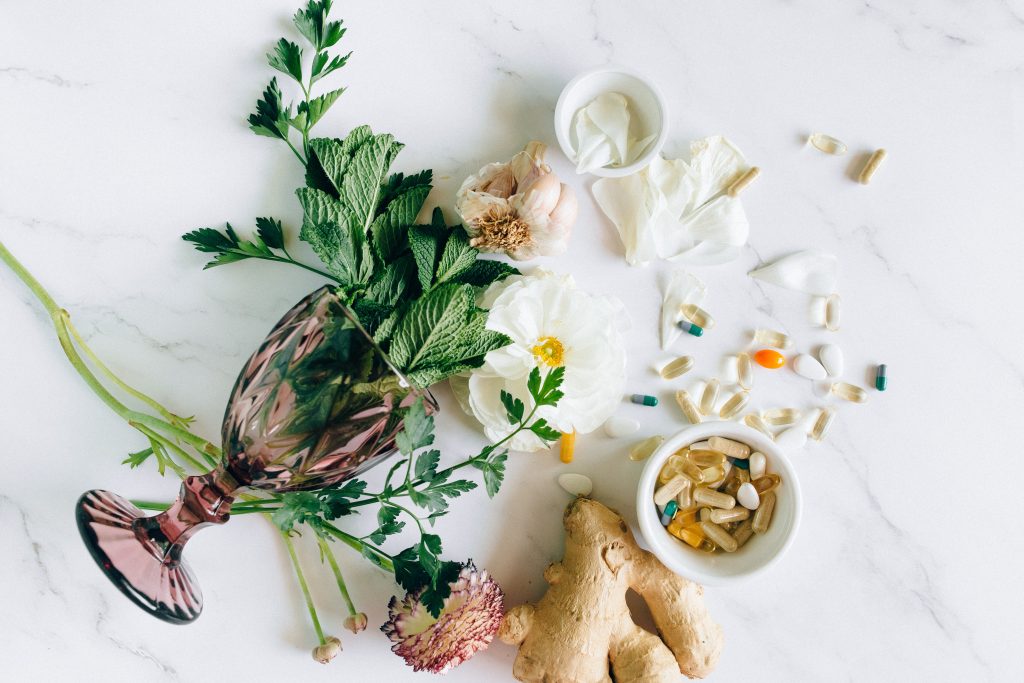
In today’s fast-paced world, the importance of sustainable living and self-sufficiency is gaining momentum. Creating a permaculture herb garden is an excellent way to embrace this lifestyle while reaping the benefits of growing and utilizing medicinal and culinary herbs. In this blog post, we will explore the concept of herbs in permaculture, the vast array of medicinal plants available, and the steps to create your own herb garden. Join us as we delve into the world of permaculture, unlocking the secrets of nature’s pharmacy right in your backyard.
In this blog we are going to unravel the magic of herb garden:
- Harnessing the Power of Herbs in Permaculture:
- Exploring the World of Medicinal Plants:
- Cultivating Your Own Herb Garden:
- Maximizing the Potential of Your Permaculture Herb Garden
- What herbs you should grow?
- Harnessing the Power of Herbs in Permaculture:
Permaculture is a holistic approach to gardening that emphasizes sustainability, biodiversity, and self-sufficiency. Integrating herbs into permaculture systems can greatly enhance the overall health and productivity of your garden. By incorporating companion planting, using herbs as natural pest repellents, and practicing organic cultivation methods, you can create a harmonious ecosystem that supports the growth of medicinal and culinary herbs. - Exploring the World of Medicinal Plants:
The world of medicinal plants is a treasure trove of natural remedies, offering a wide range of health benefits. From relieving common ailments to boosting the immune system, medicinal herbs have been used for centuries to promote well-being. In your permaculture herb garden, you can grow a variety of medicinal plants such as lavender, chamomile, peppermint, and echinacea. We’ll dive into the specific properties and uses of these herbs, equipping you with the knowledge to harness their healing potential. - Cultivating Your Own Herb Garden:
Growing your own herb garden not only provides you with a fresh supply of flavorful ingredients but also offers numerous benefits for your health and well-being. In this section, we’ll guide you through the steps of creating and maintaining a successful herb garden. From selecting the right location and preparing the soil to choosing suitable herbs and caring for them, you’ll learn the essentials of herb gardening. We’ll also discuss the benefits of growing an herb garden, including cost savings, access to organic produce, and the satisfaction of nurturing your own plants. - Maximizing the Potential of Your Permaculture Herb Garden:
Once your permaculture herb garden is flourishing, it’s essential to maximize its potential by effectively preserving and utilizing the herbs you’ve grown. Explore different methods of herb preservation, including drying, freezing, and making herbal extracts or tinctures. Discover how to incorporate these herbs into your daily life by using them in cooking, creating homemade herbal remedies, or even crafting natural beauty products. Unleash the full potential of your permaculture herb garden by exploring the many ways to utilize and enjoy the bounty it provides. - What herbs you should grow?
When planning your permaculture herb garden, consider growing a diverse selection of herbs that offer both medicinal and culinary benefits. Here are some popular herbs that you can include in your garden:
1. Basil: A versatile herb with a delightful aroma, basil is commonly used in cooking. It pairs well with tomatoes, making it ideal for sauces, pesto, and salads.
2. Lavender: Known for its calming properties, lavender is a fragrant herb that adds beauty to your garden. It can also be used to make soothing teas, essential oils, and sachets.
3.Chamomile: Chamomile is renowned for its calming and sleep-inducing qualities. It’s commonly brewed into a tea, but the flowers can also be used in skincare preparations.
4. Peppermint: With its refreshing taste and cooling effect, peppermint is a popular herb for teas and desserts. It aids digestion and can be used in homemade toothpaste and insect repellents.
5. Rosemary: Aromatic and flavorful, rosemary is a woody herb that adds a delicious twist to roasted meats, vegetables, and marinades. It’s also known for its antioxidant properties.
6. Sage: Sage has a distinct flavor and is often used in savory dishes. It pairs well with poultry and stuffing. Medicinally, sage is known for its antimicrobial and antiseptic properties.
7. Thyme: Thyme is a versatile herb with a subtle, earthy flavor. It complements a wide range of dishes, including soups, stews, and roasted vegetables. Thyme also has antibacterial properties.
8. Echinacea: Echinacea is a medicinal herb commonly used to boost the immune system and alleviate cold and flu symptoms. It can be made into tinctures, teas, or extracts.
9. Dill: Dill is an aromatic herb with a distinct flavor. It’s commonly used in pickling, fish dishes, and salads. Dill also has antimicrobial and digestive properties.
10. Lemon Balm: Lemon balm has a citrusy aroma and a refreshing taste. It’s often used in teas, desserts, and infused oils. It has calming properties and can help reduce anxiety and stress.
These are just a few examples of the many herbs you can grow in your permaculture herb garden. Consider your personal preferences, the climate of your region, and the specific medicinal and culinary benefits you seek when selecting herbs for your garden.
Creating a permaculture herb garden is a fulfilling journey that allows you to reconnect with nature, embrace sustainable living, and harness the power of medicinal and culinary herbs. By integrating herbs into your permaculture system, you can enjoy the benefits of a thriving ecosystem while nurturing your health and well-being. Start your herb gardening adventure today and unlock the secrets of nature’s medicine cabinet right in your backyard.


